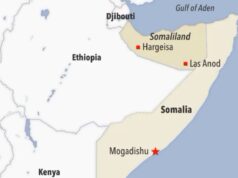
Africa represents only 3% of global trade. Growth rates seen over the last 15 years or so remain too weak, given that the continent has to feed 1.3billion people. Many predict that Africa would be a future growth center having regard to its demographic potential. Yet, a vast gulf exists between the current state of affairs and the lofty goal of creating the world’s largest market. There are ambitious growth pathways charted out. Some of them are worth mentioning. On 21 March 2018, agreements were signed to create an African Continental Free Trade Area (AfCFTA), which was billed as a historic event. The launch of the AfroChampions initiative in October 2017 was another landmark. The 4th Transform Summit Africa, held in Kigali in May 2018 aimed to accelerate the growth of a continent-wide digital economy.
What is happening on the ground needs careful study. For all practical purposes, the AfCFTA exists only in paper and a lot of work remains to be done. It calls upon all African stakeholders – such as private sector companies, civil society, governments and pan-African institutions – to unite in partnerships. The continent is an assortment of 55 countries, which are unique in their geography and population. By the beginning of 2019, the signatory states will have had to create laws to liberalize trade on 90% of products. However, 44 signatory countries will need to ratify the agreement. No one knows when they will be completed. A notable among them is Nigeria, which is not showing enough political will to ratify the agreement.
Free trade area was floated by the African Union Commission in 2012. There was a delay in kicking off negotiations. In 2016, the idea of AfroChampions was born thanks to the efforts of private-sector stakeholders from a range of African countries. These business champions will have to create a fertile ground for the emergence of SMEs and new business leaders, with the potential to compete with the world’s major conglomerates in the future. The successful conglomerates in Africa are few and they pale into insignificance as compared to their counterparts elsewhere in the world.
Data is difficult to come by in Africa, which is crucial for identifying the sectors to target as a priority, the areas where things are currently working, the relevant stakeholders, the situation on the ground, turnover figures, useful work capacity, industrial base, gainful employment data, and regional integration. Africa’s technology is not yet at a level that would allow it to compete with global giants.
Creation of a pan-African payment system that is sufficiently reliable for transactions to be effective lie at the core of developing Africa. But the progress is painstakingly slow, though some efforts are underway under the aegis of the AU. The AU is also seeking to create a system for overseeing changes in trade barriers other than tariffs and a monitoring body for intra-African trade. Is AU developing the infrastructure required for pan-African trade, is a question posed by many in business and the governments.











